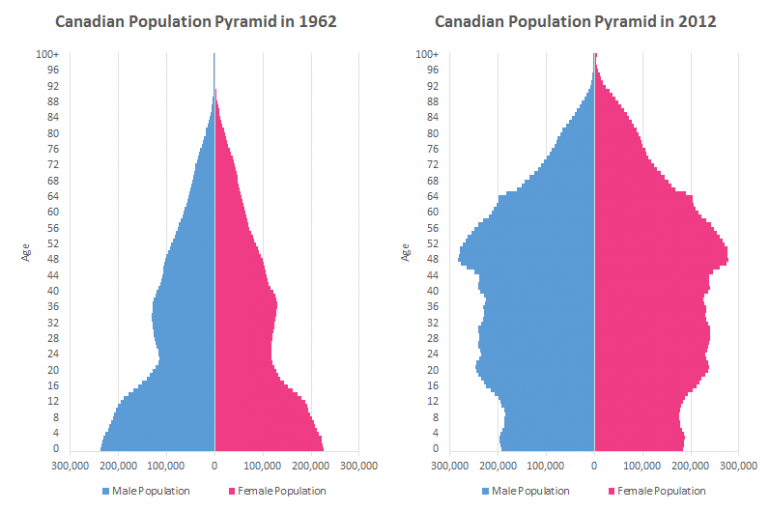We often look at significant medical advances that extend life as likely contributors to further improvements in longevity. But, but could additional improvements in both health and life expectancy also be gained through advances that enhance the quality of life for the elderly?
Dr. Atul Gawande, the author of The Way We Age Now had my full attention the moment he mentioned “the rectangularization of survival”. The concept is interesting when we think about longevity in actuarial tables, but is also appealing to me as a human being with the goal to survive.
In simple terms, when actuaries and others who study longevity talk about “rectangularization of survival”, we are talking about populations surviving longer into old age. A human population that was weighted more heavily toward younger ages, with a declining proportion of the population represented by older ages (picture a triangle where the base narrows as ages increase), has slowly morphed into more of a rectangle.

Canadian Human Mortality Database. Department of Demography, Université de Montréal (Canada). Available at www.demo.umontreal.ca/chmd/ (data downloaded on July 17, 2018).
The increases in longevity that we have observed over the past 50 years are a new phenomenon relative to the trend observed over the span of human existence. Prior to relatively recent medical advances that have reduced the incidents of deaths from infection, childbirth and traumatic injury, death at young ages was a real and accepted part of human life (i.e., a narrower top of the population pyramid described above). Around the 1970s, progress in medical research began to impact the incidence of middle and old-age deaths, and has contributed to the fact that improvements in longevity over recent decades have largely been experienced over ages leading up to and during retirement.
After digesting this seven-syllable gem of longevity jargon, the premise of the article continued to resonate with me – both as a person and as an actuary. Although the main purpose of the article is to highlight the importance of geriatric medicine, and to define it differently from how we may typically think of it, an important question is raised.
If medical professionals increasingly focus more on the quality of life of patients in old age instead of simply the length of life, will we see an impact on future longevity?



